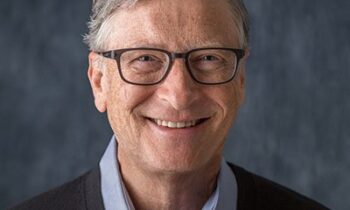
The Bill & Melinda Gates Foundation today announced a series of initiatives and a call for proposals to advance locally-led innovation that supports work by scientists and researchers in developing economies. The announcement was made at the Grand Challenges Annual Meeting earlier today.
This year’s meeting focuses on lessons learned from the COVID-19 pandemic, which highlighted the
need for high-impact R&D platforms, partnerships, and policies that effectively bridge the gap between
innovation and equitable access. The meeting brings together researchers from around the world to
share work, learn about cutting-edge advances in the health care field, and collaborate with other
investigators.
“Health equity shouldn’t just be a statement of why we do this work. It should guide how we do it,” said
Kedest Tesfagiorgis, deputy director of Global Partnerships & Grand Challenges at the Bill & Melinda
Gates Foundation. “When we support locally led innovation, we maximize impact by bringing different
kinds of knowledge and perspectives to the fore.”
As part of the Grand Challenges Global Call to Action, a 10-year initiative announced at last year’s
meeting to help ensure scientists and institutions in low- and middle-income countries (LMICs) play a
central role in shaping the global R&D agenda, the foundation announced two new Grand Challenges
initiatives:
- Pathogen Genomic Surveillance and Immunology in Asia: This is an invitation for proposals from investigators in South and Southeast Asia to design and pilot a genomic surveillance program or develop capacity for immunology and immune sequencing of SARS-CoV-2 to inform epidemic response. Up to $300,000 per year for up to two years will be available for each project, with potential additional funding for projects that include a focus on monoclonal antibody discovery.
- Building Data Modeling Capacity for Gender Equality: This is an invitation for proposals from investigators in low- and middle-income countries for projects aimed at addressing disparities and gaps affecting women and girls in health. This initiative is focused on innovative approaches to modeling that advance gender equality. Each project will receive up to $500,000 over one to three years.
- “Societies measure what they value, and for most of history, society hasn’t valued women. This means
- we’re trying to tackle global health and development challenges with missing information,” said Anita
- Zaidi, president of the Gender Equality division at the Bill & Melinda Gates Foundation. “It is long past
- time to put women and girls at the center of the data modeling that guides our solutions.”
“Societies measure what they value, and for most of history, society hasn’t valued women. This means
we’re trying to tackle global health and development challenges with missing information,” said Anita
Zaidi, president of the Gender Equality division at the Bill & Melinda Gates Foundation. “It is long past
time to put women and girls at the center of the data modeling that guides our solutions.”
In partnership with the Chan Zuckerberg Initiative (CZI), the foundation will also provide grants to
researchers investigating and detecting emerging pathogens in LMICs. Researchers will receive up to
$200,000 each for up to two years, as well as operational support and technical training from the Chan
Zuckerberg Biohub (CZ Biohub). This funding commitment builds on a 2018 partnership between the
foundation, CZI, and the CZ Biohub that is focused on building metagenomics capacity in LMICs through
a Global Grand Challenges initiative.
The 2022 Grand Challenges Annual Meeting in Brussels is hosted by Global Grand Challenges and the
European Commission, and co-sponsored by Grand Challenges Canada, USAID, Wellcome, and the Bill & Melinda Gates Foundation.
The two-day event features dozens of leaders from across the global health innovation landscape, as
well as Gates Foundation leadership, including Bill Gates (co-chair and trustee); Anita Zaidi; and Trevor
Mundel (president, Global Health Division).




